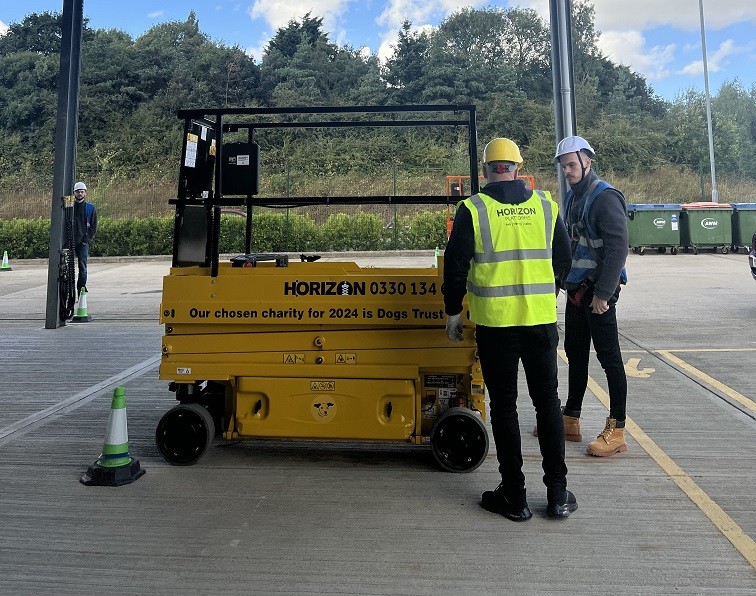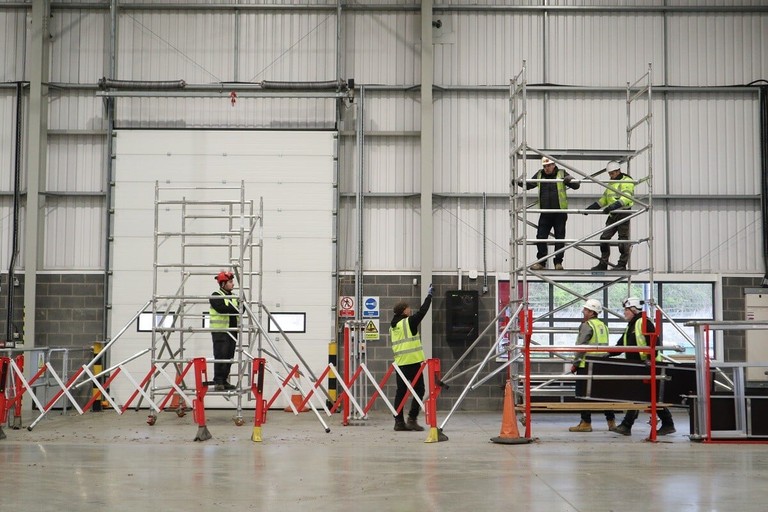Before undertaking any work from height, it’s an expected, and often legal requirement, to have received appropriate training. Typically, this will be provided via approved training courses such as those accredited by IPAF or PASMA. But what’s involved in each, and how do you know which type of access platform training you need?
In this article, we’ve compared PASMA and IPAF operator training, looking at the differences between their respective types of courses, as well as what’s involved in each and where you can complete the courses you need to safely and securely operate from height.
An introduction to IPAF vs PASMA
Before we explore what’s involved in each training course, it’s useful to provide an overview of the key difference between IPAF (International Powered Access Federation) and PASMA (Prefabricated Access Suppliers’ and Manufacturers’ Association).
Ultimately, both bodies provide high-quality training around working safely at height, but the key difference between IPAF training and PASMA training is that IPAF focuses on safely using MEWPs (Mobile Elevating Work Platform) and powered access equipment – like cherry pickers and scissor lifts – while PASMA covers access equipment such as mobile access towers and low level working podiums.
Do I need Training to Work From Height?
Anyone responsible for managing, operating, or even inspecting an access tower or MEWP, for example, should complete relevant training (or be supervised by someone with the right training), to ensure competency and understanding of the risks involved. This is reiterated in the Work at Height Regulations 2005, which were introduced to prevent death and injury from falls when working at height.
IPAF sets the standard for powered access platform training, while PASMA is an industry leading training body for mobile access towers. If you’re working across both powered access platforms and mobile towers, it is recommended that you undertake a combined IPAF and PASMA course, to cover all modules.
What is IPAF Training?
In a nutshell, IPAF training, developed by the International Powered Access Federation, ensures anyone working from height is able to safely operate MEWPs and powered access platforms.
What Does IPAF Training Cover?
IPAF’s range of training courses significantly mitigate risk, reduce accidents, and improve safety. This is in line with several UK legislations, including:
- The Work at Height Regulations 2005
- The Lifting Operations and Lifting Equipment Regulations 1998 (LOLER), which ensures the safe use of lifting equipment in the workplace
- The Provision and Use of Work Equipment Regulations 1998 (PUWER), which dictates all workplace equipment should only be used by a trained professional
Although delegates will over the use of safe use MEWPs in practical, e-learning or classroom sessions, each programme is specific to certain job roles and equipment use. So, it’s important to choose a course that covers what you need. Examples include:
- IPAF 1A covers static vertical operation
- IPAF 1B covers static boom operation
- IPAF 3A covers mobile vertical operation
- IPAF 3B covers mobile boom operation
- IPAF MEWPs for Managers
- IPAF Demonstrator
Click on this link to see examples of all IPAF training courses available.
Alternatively, there are also non-operator courses available, for instructors, ground-level management, harness safety, and more. For more information, read our guide about how to choose the right IPAF training course.
Where Can I Complete IPAF Training?
You can complete IPAF accredited training courses with Horizon Platforms at our centre in Normanton (Wakefield), West Yorkshire, or at a place that suits you. Or, for total convenience, you can complete on-site IPAF training at your workplace no matter where you’re located in the UK, saving your team time and money. With a pass rate of 96%, we’re an industry-leading provider of IPAF training in the UK.
What is PASMA Training?
While PASMA training isn’t necessarily a legal requirement, industry regulations, such as the Work at Height Regulations 2005, specify a need for competency when working from height. PASMA is considered to be a must-have as it is widely recognised as a way to demonstrate competence when working with mobile access towers.
To accompany and supplement their accredited courses, the Prefabricated Access Suppliers and Manufacturers Association (i.e. PASMA) regularly publish additional safety guidance, to improve industry safety standards.
What Does PASMA Training Cover?
In short, PASMA training is designed to ensure you, and your team, can meet best practices when operating from height when using a mobile tower. Courses will cover topics such as safe assembly and dismantling, use, hazards, inspection and legislation.
Where Can I Complete PASMA Training?
Just like IPAF training, PASMA training is available at Horizon Platforms’ training centre in Wakefield. In fact, we’re a PASMA-approved training member, and offer programmes throughout the year. Or, if it’s easier, we also offer on-site PASMA training, which you’ll complete from your workplace, wherever you’re located in the UK.
IPAF vs PASMA: How to Choose the Right Training Course
Both PASMA and IPAF training courses are regarded as setting the standard for teaching workers how to work from height. However, in terms of choosing between the two, if you’re using a mobile tower or low-level podium, you’ll require PASMA training, while you should undertake IPAF training to operate access platforms such as scissor lifts, cherry pickers or push around platforms.
Contact our training of experts today to ensure you and your team are industry-compliant and licensed to safely operate access platforms and work from height.


